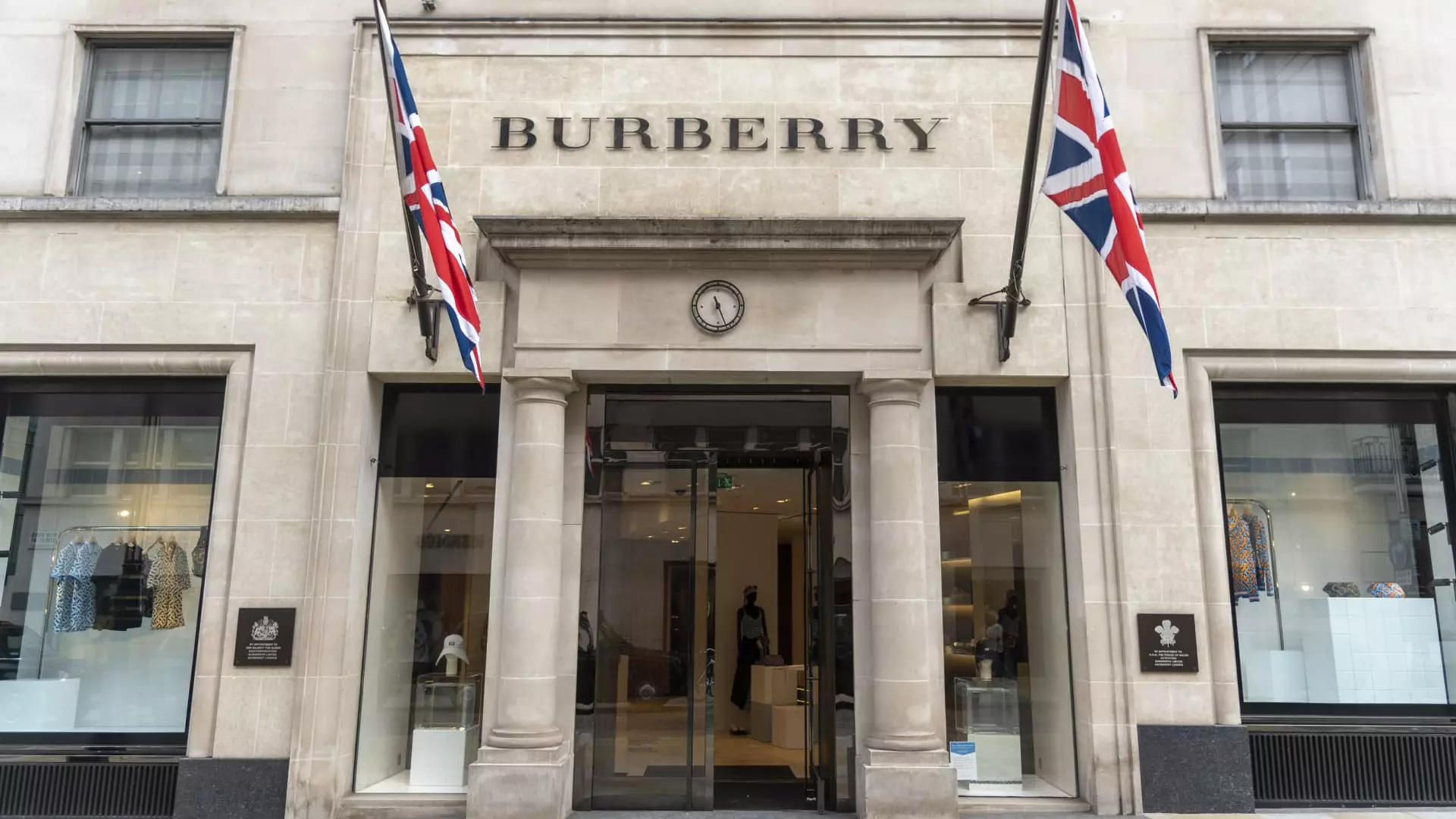Burberry Group, a British luxury fashion house, faced a major setback as it dropped out of the U.K.’s FTSE 100 stock market index, highlighting the challenges the company is currently navigating. The company’s fall from the FTSE 100 index came after a period of waning sales, management changes, and a significant decline in its share price.
Historical Context
Founded in 1856, Burberry rose to international recognition with its signature collection of trench coats, handbags, and its iconic check print. The brand’s addition to the FTSE 100 in 2009 was perceived as a testament to its enduring appeal. However, the brand’s high-end aesthetic took a hit when its iconic pattern became popular among the British working class in the 1990s and 2000s.
Burberry’s struggles have been exacerbated by the significant turnover at its top leadership levels, with four CEOs taking the helm in the last decade. This instability has left investors uncertain about the company’s direction and ability to revitalize its image in the luxury market.
Change in Leadership
The appointment of Joshua Schulman as CEO in July signals a potential shift in strategy for Burberry. Schulman, a former CEO of Coach and Michael Kors, may aim to implement a “British Coach” strategy to reinvigorate the company’s fortunes. This strategy involves cost reduction, expansion of outlets, and increased exposure to off-price retailers.
Burberry reported a significant decline in first-quarter comparable store sales, leading to its third profit warning in 12 months and the suspension of dividend payments. Analysts have expressed concerns about the brand’s momentum and the need for a strategic reset to prevent further market share losses. The possibility of a takeover looms if the company fails to address these challenges promptly.
Burberry is not alone in facing challenges within the luxury sector. The industry has experienced a downturn in consumer spending, particularly in markets like China. Competitors like Hugo Boss and Kering have also reported declines in sales, highlighting the broader economic uncertainties impacting the sector.
Despite its current struggles, there are opportunities for Burberry to recover and regain its position in the luxury market. The cyclical nature of the industry suggests that with strategic changes and effective leadership, Burberry could overcome its challenges. The company’s upcoming half-year financial results will provide further insights into its performance and potential for growth.
Burberry’s drop from the FTSE 100 index underscores the need for significant changes to address its declining sales and market performance. The appointment of Joshua Schulman as CEO presents an opportunity for the company to implement a new strategy and regain investor confidence. By recognizing industry trends, competition, and internal challenges, Burberry can work towards a more sustainable and successful future in the luxury fashion market.

